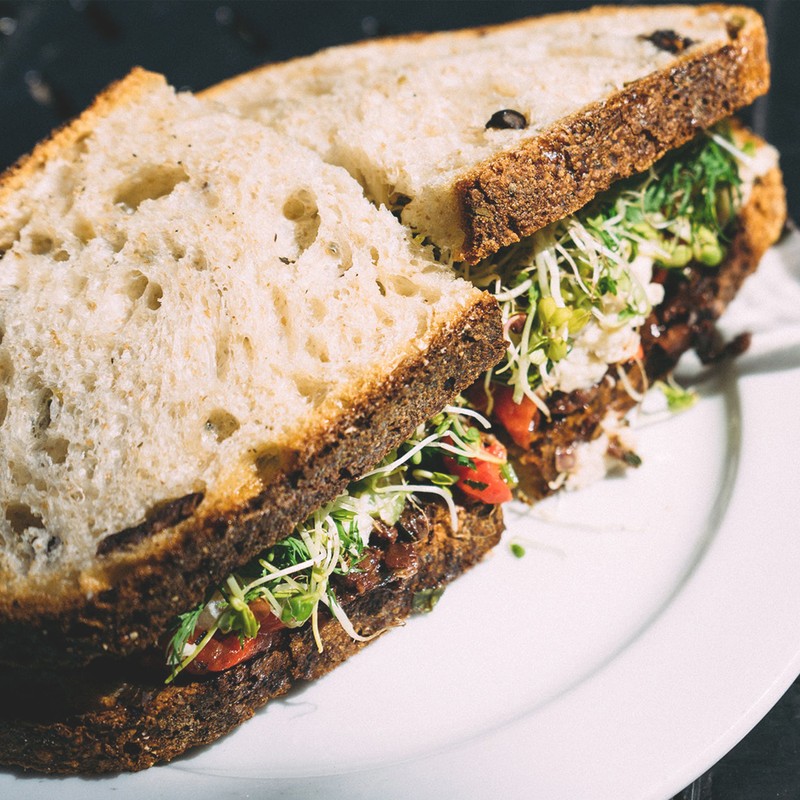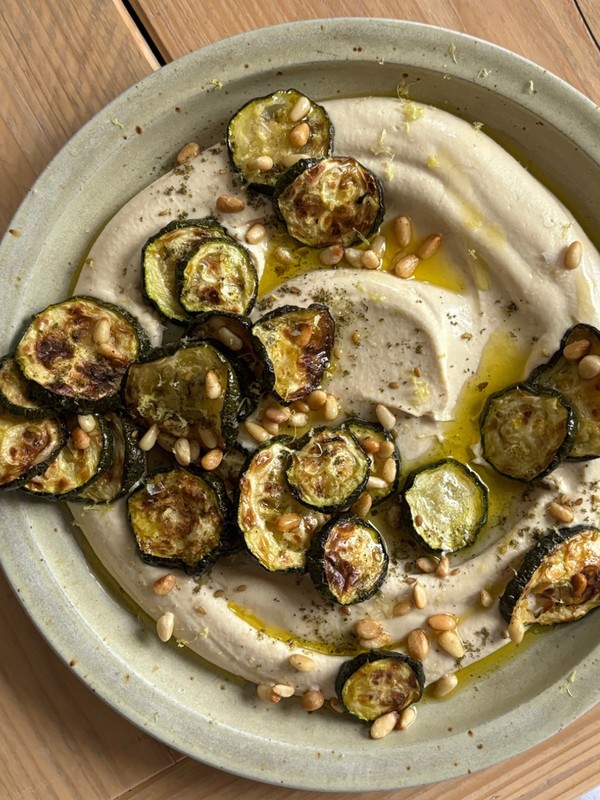How To Stop Craving Carbs
An important starting point is to understand what carbs are, and the difference between various types – after all, not all carbs are created equal. “The term carbohydrate incorporates a huge variety of foods,” explains Angelique Panagos, nutritional therapist and author of The Balance Plan. “Stripping it right down to the basics, carbohydrates are one of the three macronutrients we find in food – the other two are protein and fat. All three are nutrients our body needs and uses to thrive.”
As she explains, carbohydrates can generally be split into two categories: simple carbs, which are processed food items and contain added sugars and refined grains (think white bread, white pasta and croissants, cakes and pastries), and complex carbs, which contain fibre and nutrients such as magnesium, protein and vitamins (think beans, vegetables, oats and wholegrains). The key difference is how our body digests these different foods and turns the sugar and starch into glucose, which we can then use for energy.
“Simple carbs contain just one or two sugars and are broken down quickly by the body to be used as energy, which can cause a major blood sugar spike,” Angelique says. Complex carbs, on the other hand, are digested over a longer period of time, which means that the release of glucose and energy into the body is more measured.
“Whole grains and other complex carbs are higher in fibre too, which keeps our digestive system healthy and helps with hormone balance,” she adds. “Since they’ve not been refined, they also keep all of their nutrients, so our bodies reap the rewards of all those natural antioxidants, B vitamins and other nutrients. In fact, complex carbs can actually help us to maintain a healthy body weight, reduce LDL (the so-called ‘bad’ cholesterol), help balance our hormones, keep us regular and also cut our risk of certain cancers, too.”
So, just how can we resist the temptation to eat too many refined simple carbohydrates? We’ve asked the experts for their top tips…
Avoid skipping meals
You may need to eat less but missing out meals is not the answer – in fact this can lead you to eat more in the long run. “Skipping meals can cause your blood sugar to crash which can leave you craving higher carbohydrate foods,” nutritionist Jenna Hope explains. “Ensure you’re eating regularly and choose small protein-rich snacks such as roasted beans, nuts, Greek yoghurt with berries or hummus and crudités to keep you going.”
Up your magnesium intake
Magnesium really is a nutritional powerhouse. Not only is it proven to help boost your mood, prevent migraines, protect your heart, reduce high blood pressure and improve PMS symptoms, but it can also encourage better sleep, aid digestion and help cut your carb cravings. “Chocolate cravings surge in those who are magnesium-deprived,” Angelique explains. “Make sure you’re getting enough dark leafy greens, whole grains, nuts, seeds, beans and/or organic fish in your diet as these all contain plenty of this mineral.” You could also try taking a magnesium supplement as part of your morning routine.
Look after your good gut bacteria
Much has been said about the importance of looking after your gut microbiota, and it’s true that this can also help encourage you to eat better. “If the ‘friendly’ microflora in your gut are off-balance then your intestinal tract may have an overgrowth of yeast, which needs a high sugar environment to thrive,” explains nutritionist Dr Marilyn Glenville. “This means your body starts to crave carbs to fulfil this need. Eat natural ‘live’ yoghurt or take a good probiotic supplement to keep your good bacteria healthy and happy.”
Use cinnamon liberally
Yes, you read that right – cinnamon. It may sound strange but this store-cupboard staple has been proven to help regulate blood sugar levels, thereby preventing those sugar dips which lead to unhealthy cravings. “An essential in the sugar monster’s pantry, cinnamon is your craving’s kryptonite – regulating blood sugar levels while sweetening your food,” Angelique says. She suggests sprinkling it on your morning porridge, adding it to smoothies or brewing as a tea.
Eat protein with starchy carbohydrates
“When you eat protein with a starchy carbohydrate like pasta, potatoes or rice, it slows down the release of sugar,” Marilyn explains. “This keeps your blood sugar levels more stable, so you don’t get the dips which cause food cravings.” Stuck for ideas on how to mix and match your food? Jenna recommends super snacks such as an apple with nut butter, oat cakes with hummus, or Greek yoghurt and oats – all of which combine protein with carbohydrates.
Get a good night’s sleep
Not getting enough shut eye? This can have a big impact on your eating habits. “A lack of sleep has been associated with increased cravings for carbohydrates,” Jenna says. “This is due to adaptations in your appetite-related hormones which can become impaired as a result of poor sleep. You’re also more likely to feel tired which in turn can lead you to crave more sugar.” Her advice is to eat a dinner containing tryptophan-rich foods, such as oats, turkey, tofu and chickpeas, as this amino acid can help increase the production of the sleep hormone melatonin and allow you to have a decent night’s kip. “You can also try soaking in an Epsom salt bath in the evenings as the magnesium in the salts (which is absorbed through the skin) is known to aid sleep,” she adds.
Relieve stress
As Marilyn explains, craving carbs is part of our body’s evolutionary way of dealing with pressure or anxiety. “When you are stressed you often crave carbs because your body thinks it has to run or fight for its life,” she says. “The release of the stress hormones makes your body believe it needs to refuel and restock with quick fix foods so that it is ready for the next life or death situation.” If you’re feeling anxious, try some simple stress-busting exercises such as the 4-7-8 breathing technique where you inhale through your nose for four counts, hold your breath for a count of seven and exhale through your breath to the count of eight.
“Certain vitamins and minerals can also help reduce stress levels,” Marilyn adds. “These include the B vitamins (especially B5), magnesium which helps with sleep, chromium which aids blood sugar balance, Siberian ginseng which acts as a tonic to the adrenal glands, and L-theanine which can reduce stress and anxiety.”
Stock your cupboards with the right sorts of carbs
As we’ve already said, there’s a big difference between simple and complex carbs and the key is to incorporate more of the latter into your diet. “Consuming complex carbohydrates (beans, wholegrains, pulses, fruits and vegetables) helps to stabilise blood sugar levels and prevent large spikes and crashes which can leave you craving simple carbohydrates,” Jenna says. “Next time you’re shopping try swapping your white carbohydrates for wholegrain or bean varieties – instead of white pasta opt for chickpea, pea or brown rice pasta and instead of white rice buy brown rice or quinoa.” After all, if your cupboards are full of healthier options, the chances are you’ll be more likely to eat well.
DISCLAIMER: We endeavour to always credit the correct original source of every image we use. If you think a credit may be incorrect, please contact us at info@sheerluxe.com.






